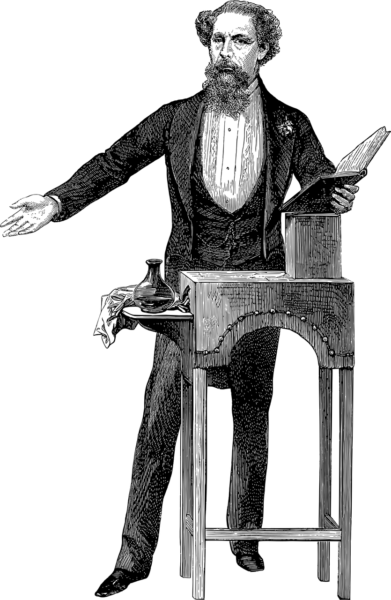Allan Edgar Poe – The Master of Mystery and Darkness

Introduction:
Allan Edgar Poe, commonly known as Edgar Allan Poe, is an iconic figure in American literature. His unique style and macabre themes have captivated readers for centuries, making him one of the most celebrated authors of all time. This article aims to provide a comprehensive overview of Poe’s life, his contribution to the literary world, and his impact on the genre of horror and suspense.
I. Early Life and Influences

Born on January 19, 1809, in Boston, Massachusetts, Edgar Allan Poe had a tumultuous life from the very beginning. His parents, actors David Poe Jr. and Elizabeth Arnold Poe, died when he was just a toddler, leaving him in the care of John and Frances Allan, foster parents who raised him in Richmond, Virginia. Poe excelled academically and showed a keen interest in literature from an early age.
Poe’s exposure to gothic and romantic literature greatly influenced his writing style. Works by authors such as Percy Bysshe Shelley, Washington Irving, and Nathaniel Hawthorne served as a catalyst for his dark and mysterious tales. He also drew inspiration from classical literature, particularly the works of William Shakespeare and Edgar Allan Poe.
II. Writing Career Breakthrough
Poe’s writing career began in his teenage years when he entered a poetry contest and won with his poem “Tamerlane.” This victory marked the first step towards establishing himself as a prominent figure in the literary world. Poe’s early works attracted attention for their dark undertones and themes of death and despair.
In 1836, Poe married his 13-year-old cousin, Virginia Clemm, which raised some eyebrows but did not deter his creative output. He continued to publish poems and short stories, gaining notoriety for his macabre narratives and his ability to invoke fear and suspense in readers.
III. Major Works and Contributions
Poe’s literary repertoire encompasses various genres, including poetry, short stories, and literary criticism. Some of his most renowned works include “The Raven,” “The Tell-Tale Heart,” and “The Fall of the House of Usher.” These stories, characterized by their eerie atmosphere and psychological depth, solidified Poe’s position as a master of suspense and horror.
Furthermore, Poe’s critical essays contributed significantly to the development of detective fiction, a genre that would later become immensely popular. His analytical approach to solving mysteries is evident in stories like “Murders in the Rue Morgue,” featuring the iconic fictional detective C. Auguste Dupin.
IV. Historical Evolution of Edgar Allan Poe’s Influence
Despite his initial struggles with poverty and personal tragedies, Poe’s works gained recognition and popularity during his lifetime. However, his true impact emerged after his death in 1849. Gradually, Poe’s literary achievements became widely recognized, and his contributions to the genres of horror, suspense, and detective fiction were acknowledged.
Earlier regarded as a mere entertainer, Poe is now revered for his innovative narrative techniques and exploration of the human psyche. His influence can be observed in the works of renowned authors like H.P. Lovecraft, Stephen King, and Neil Gaiman, who have carried forward Poe’s legacy of writing gripping tales that delve into the depths of the human soul.
V. Edgar Allan Poe’s Enduring Legacy
Poe’s legacy extends beyond his literary contributions. His enigmatic persona and mysterious death have added to his allure, making him a figure of fascination for both scholars and casual readers. Many adaptations of his works, including films, plays, and television shows, have kept his stories alive in popular culture.
Poe’s ability to evoke a range of emotions, from fear to sorrow, through his writing ensured his place in the literary canon. His use of symbolism, vivid imagery, and intricate storytelling techniques continue to inspire and captivate readers to this day.
Conclusion:
Edgar Allan Poe’s life was marked by tragedy, adversity, and a relentless pursuit of literary excellence. His groundbreaking works and immense influence cannot be overstated. Whether it be his exploration of the macabre, his pioneering role in detective fiction, or his contributions to American literature as a whole, Poe’s legacy remains firmly intact.
As art enthusiasts and collectors, it is important for us to acknowledge and celebrate the genius of Edgar Allan Poe. His ability to weave tales of suspense and horror has left an indelible mark on the literary world. Through his works, Poe challenges us to confront our fears and delve into the darkest recesses of the human experience. His legacy will continue to inspire generations of readers, artists, and writers, ensuring that his name remains synonymous with mystery and intrigue.
FAQ
What are some of Edgar Allan Poes most famous works?
What is Edgar Allan Poes contribution to the genre of detective fiction?
What is Edgar Allan Poes enduring legacy?
Flere Nyheder
Saxofonist kunsten at give åndedræt form
Introduction: Allan Edgar Poe, commonly known as Edgar Allan Poe, is an iconic figure in American literature. His unique style and macabre themes have captivated readers for centuries, making him one of the most celebrated authors of all time. This a...
01 februar 2026
Fotobog: Forevig dine bedste minder
Introduction: Allan Edgar Poe, commonly known as Edgar Allan Poe, is an iconic figure in American literature. His unique style and macabre themes have captivated readers for centuries, making him one of the most celebrated authors of all time. This a...
31 juli 2025
Den ultimative guide til at vælge en erhvervsfotograf I Fredericia
Introduction: Allan Edgar Poe, commonly known as Edgar Allan Poe, is an iconic figure in American literature. His unique style and macabre themes have captivated readers for centuries, making him one of the most celebrated authors of all time. This a...
04 juli 2025
Erhvervsfotografering i Aalborg: Skab en visuel identitet
Introduction: Allan Edgar Poe, commonly known as Edgar Allan Poe, is an iconic figure in American literature. His unique style and macabre themes have captivated readers for centuries, making him one of the most celebrated authors of all time. This a...
03 marts 2025











